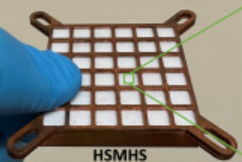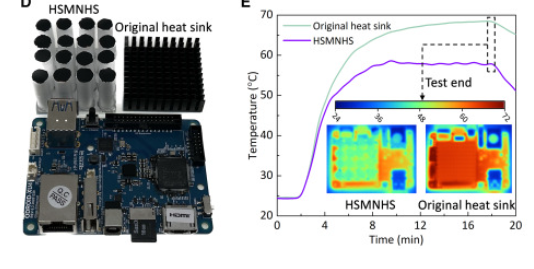Researchers from Hong Kong have tested an improved heatsink for electronic equipment, which uses salt water, in a similar process to that used by animals sweating.
The group, led by Wei Wu of the School of Energy and Environment, City University of Hong Kong, tested a heatsink containing a small tank of salt solution confined by a porous membrane that only water molecules could pass through.
Water molecules leaving the tank produced a "desorptive" cooling effect similar to that provided in evaporative cooling. When the electronic system is switched off, the solution reabsorbed water molecules, regenerating it for future use.
The process is the same as that used by mammals, who have salty sweat to cool them down, the team noted.
"We selected lithium bromide as a cost-effective sorbent while avoiding crystallization," the group reports in a paper for Device. The team found that its heatsink could provide cooling up to 75kW per sqm, for nearly seven hours (400 minutes), improving the performance of the electronics it cooled by nearly 33 percent.
"The strategy can be useful for various applications that need intermittent thermal regulation, with few technological barriers," the team says.
The group proposes a passive cooling strategy could be better than active cooling, which relies on external devices such as fans and pumps. By contrast, passive cooling can be done with no extra emissions, in a smaller space, and with low maintenance.
The team tested both lithium chloride and bromine chloride in their hygroscopic salt-loaded membrane-encapsulated heat sink (HSMHS), showing that the system didn't leak or cause corrosion.
They created a heatsink and placed it on the CPU of a real computing device (an ODROID-XU4), improving the performance by 32.65 percent compared with the computer cooled by a conventional heatsink.
"The proposed strategy shows record-high cost-effectiveness for commercialization, the team's paper concludes. "Our cooling strategy is both cost-effective and highly scalable, which can be useful for various cooling applications with few technological barriers."
Alongside six scientists from City University of Hong Kong, the group included one researcher from the School of Energy and Power Engineering, Huazhong University of Science and Technology, Wuhan, China.





